Faculty Seminars
The GU-Q Faculty Seminar Series invites faculty and guests from other institutions to present their research in progress and receive expert feedback.
2024-2025 Seminars
In the 2024-2025 academic year, GU-Q will be welcoming guests from around the world. Follow below for more information.
2023-2024 Faculty Seminar Highlights
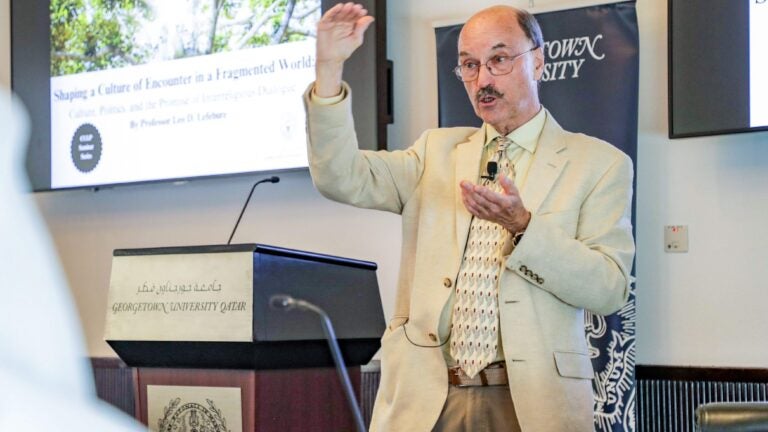
New CULP Seminar Series
A new Culture and Politics (CULP) Seminar Series was launched with a talk by Leo Lefebure, Georegtown University Professor and Matteo Ricci, S.J., Chair of Theology. His talk on “Shaping a Culture of Encounter in a Fragmented World: Culture, Politics, and the Promise of Interreligious Dialogue,” suggested five areas where interreligious dialogue partners can work with political and cultural leaders in shaping a culture of encounter: aesthetics, academic sharing, spiritual encounter, concern for the world, and friendship.
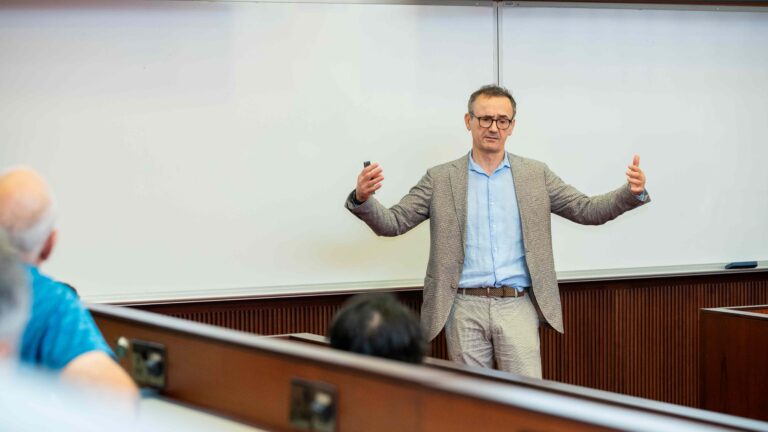
IECO Seminar Series
Economic Seminar Series guest Professor Akos Valentinyi from University of Manchester, gave a talk on “New Evidence on Sectoral Labor Productivity: Implications for Industrialization and Development.” He presented research results that challenge the notion that expanding manufacturing employment in low income countries is essential for closing aggregate productivity gaps.
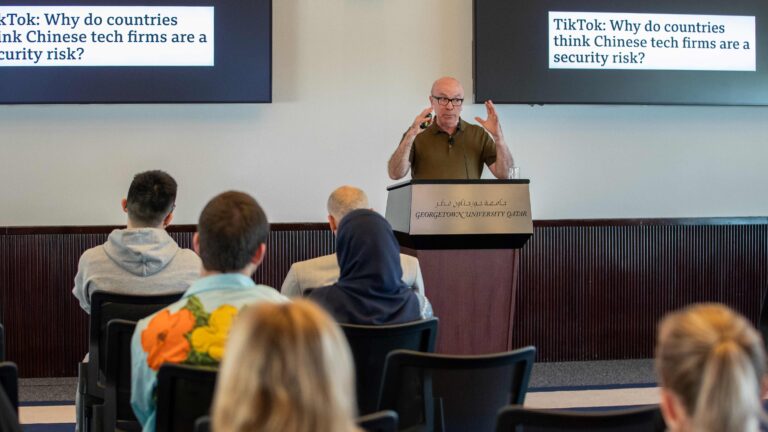
Faculty Seminar Series
Professor Mohammed Zayani’s Faculty Seminar Series guest Paul McDonald gave a talk on “Placing Social Media Industries: On the Multiple Geographies of TikTok.” He argued for the need to position major digital media players such as TikTok within multiple geographies – corporate, financial, regulatory, and infrastructural. Paul McDonald is a Professor of Media Industries at King’s College London.
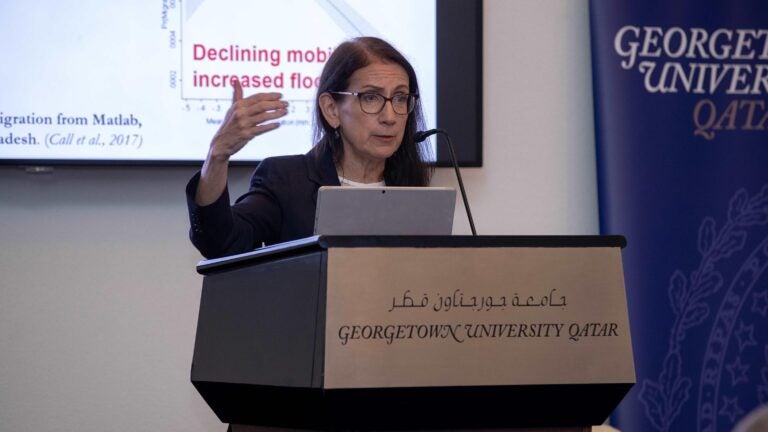
DC Faculty Seminar Talk
GU-Q innaugurated a new series of DC short term faculty guests which welcomed many esteemed collegues from the DC campus to GU-Q. In addition to engaging with faculty, they gave guest talks, such as “The Environmental Drives of Out-Migration in Bangladesh,” by the Director of the Institute for the Study of International Migration at the Walsh School of Foreign Service, Professor Katharine Donato.
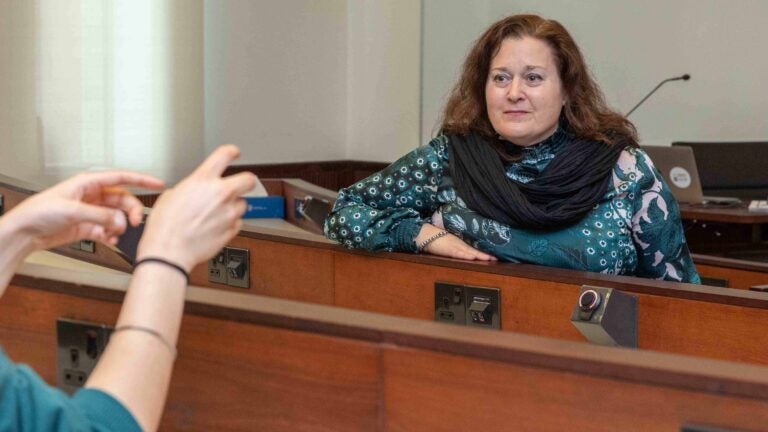
Indian Ocean Working Group
By invitation from the Indian Ocean Working Group, Professor Nicole Ranganath from the University of California, Davis, gave a talk on “Women and the Sikh Diaspora: the Alternative Transoceanic Imaginary in Women’s Performance of Anti-Colonial Gadar Songs.” In the talk, the professor reimagined the history of the South Asian diaspora through an examination of gender and the dynamic interplay of water and land in the cultural history of Sikhs.